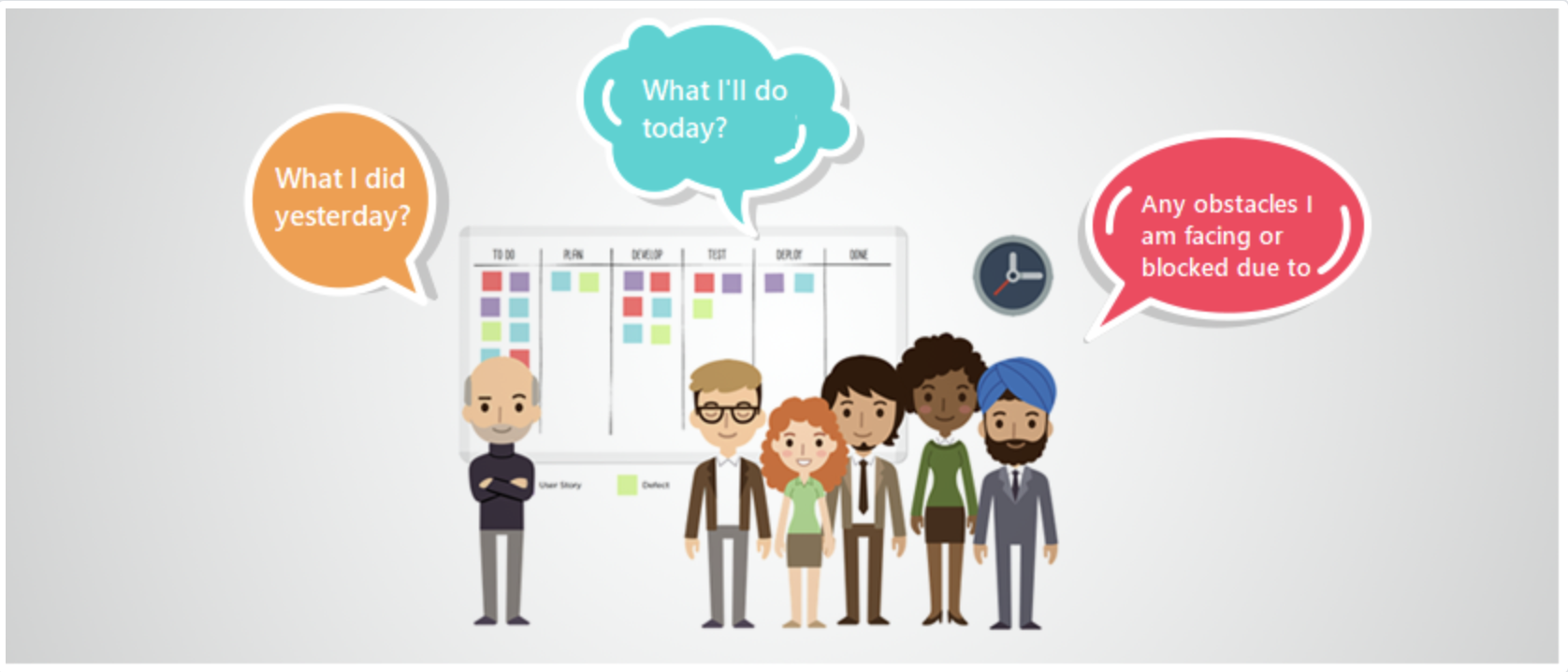Daily Stand Ups for Effective Team Meetings

Introduction
Daily stand-ups are essential for ensuring effective team collaboration, project tracking, and timely issue resolution. These short, structured meetings help teams align their progress and address challenges efficiently. In a typical stand-up, team members answer three key questions:
- What have you done since the last meeting to help the team meet its sprint goal?
- What will you do today?
- Are there any impediments or blockers to your progress?
While these questions seem simple, their impact is profound. An effective daily stand-up fosters communication, enhances accountability, and keeps projects on track. However, many teams struggle to conduct stand-ups efficiently, reducing their effectiveness.

Benefits of an Effective Daily Stand-Up
A well-structured stand-up meeting provides multiple benefits:
1. Enhanced Team Alignment – Every team member stays informed about the project’s progress and individual contributions.
2. Increased Motivation – Awareness of team progress fosters a sense of purpose and encourages healthy competition.
3. Quick Issue Resolution – Team members collaborate to address blockers and provide timely support.
4. Better Productivity – It sets a focused tone for the day, keeping team members engaged and proactive.
Common Mistakes in Daily Stand-Ups
1. Casual Attitude Toward Meetings
Many teams fail to recognize the importance of stand-ups, leading to a lack of engagement. Instead of treating them as routine check-ins, teams should actively participate and provide meaningful updates.
2. Skipping Stand-Ups Due to Lack of Updates
Stand-ups should be consistent, regardless of progress. Some common excuses for skipping include:
– Being busy with high-priority issues.
– Using other meetings (e.g., refinements) as substitutes.
– Not having visible progress on tasks.
Even when no significant updates exist, the meeting provides an opportunity to share insights, discuss blockers, and stay aligned.
3. Showing Up Late
Punctuality is crucial for a productive stand-up. Since these meetings are time-boxed (usually 15 minutes), lateness disrupts the flow and reduces efficiency. Teams should enforce accountability measures to ensure timely participation.
4. Repetitive or Superficial Updates
If a team member provides the same update daily, it might indicate a hidden blocker. Instead of vague responses, team members should be open about their challenges so the team can offer support.
5. Passive Participation
A stand-up should be an interactive discussion, not a one-sided update session. If team members remain silent, it indicates a lack of engagement. Encouraging an open and collaborative atmosphere helps teams make the most of these meetings.
Strategies for Improving Daily Stand-Ups
1. Keep Meetings Engaging
To avoid monotony, focus on meaningful discussions rather than just answering the three questions. The goal is to drive progress, not to check a box.
2. Address Lateness with Fun Consequences
Implement small but engaging consequences for late arrivals, such as sharing a productivity tip or taking on a minor team responsibility. This keeps the meeting light-hearted while reinforcing punctuality.
3. Promote Active Listening
Instead of using a fixed order for updates, randomly select team members to keep everyone alert. Active listening ensures that updates are understood and not just heard.
4. Encourage Preparation
Team members should review their work before the meeting to provide concise, valuable updates. Additionally, non-essential discussions should be taken offline to keep stand-ups short and focused.
5. Maintain Consistency
Avoid canceling stand-ups, even on days with fewer updates. These meetings reinforce team alignment and ensure that blockers are addressed promptly.
Conclusion
Daily stand-ups are a powerful tool for fostering collaboration and maintaining project momentum. By eliminating common mistakes and following best practices, teams can transform these meetings into valuable, results-driven discussions. When done right, stand-ups empower teams, enhance efficiency, and contribute to a more productive work environment.
As organizations evolve, structured communication methods like daily stand-ups play a vital role in achieving project success. Moreover, with the rise of AI-driven tools, teams can leverage automation to optimize their workflows. Exploring the impact of AI applications on industries and daily life further underscores the importance of efficient team collaboration in today’s digital landscape.
Do you like to read more educational content? Read our blogs at Cloudastra Technologies or contact us for business enquiry at Cloudastra Contact Us.